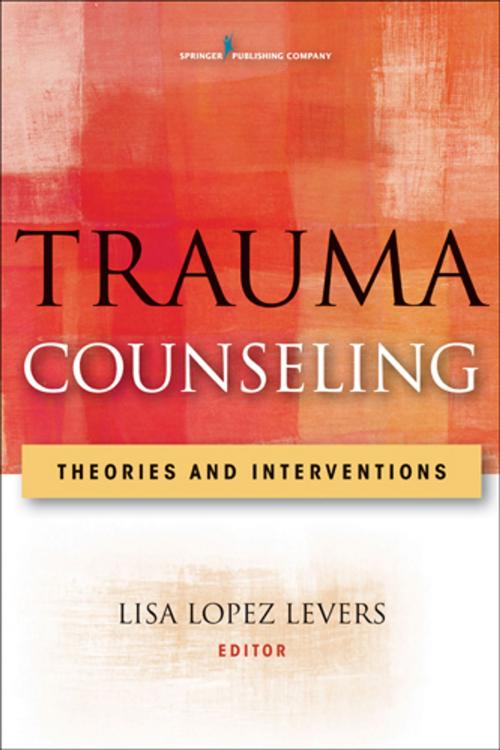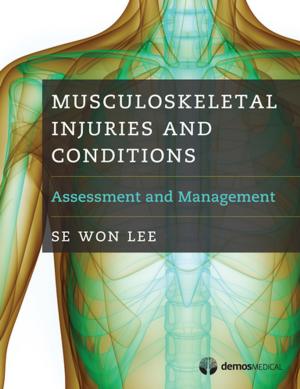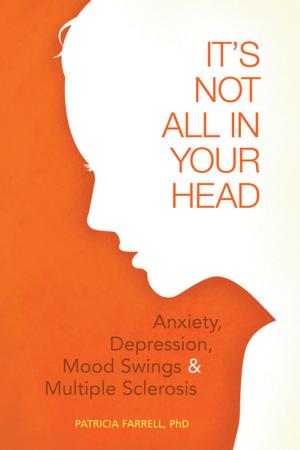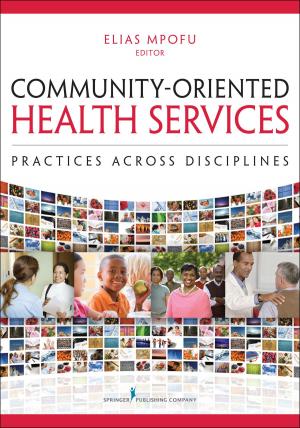Trauma Counseling
Theories and Interventions
Nonfiction, Health & Well Being, Psychology, Counselling| Author: | Lisa Lopez Levers, PhD, LPCC-S, LPC, CRC, NCC | ISBN: | 9780826106841 |
| Publisher: | Springer Publishing Company | Publication: | March 15, 2012 |
| Imprint: | Springer Publishing Company | Language: | English |
| Author: | Lisa Lopez Levers, PhD, LPCC-S, LPC, CRC, NCC |
| ISBN: | 9780826106841 |
| Publisher: | Springer Publishing Company |
| Publication: | March 15, 2012 |
| Imprint: | Springer Publishing Company |
| Language: | English |
"[This book is] heavy in weight and heavy in substance...It may be that you will not read this book from cover to cover, but it is likely that you will jump in and out, and often."--Illness, Crisis, and Loss
"[Lisa Lopez Levers's] work delivers an important contribution to enable beginning professionals to be familiarised with the basics of trauma and to provide specialists with her hidden gems of insight. Her decision to cover trauma, in its broadest sense, allows her textbook to provide innovative insights into real-world concepts such as: hate, racism, oppression and evil, in respect to trauma."--Intervention
Trauma Counseling is a comprehensive, multidisciplinary guide to the theory and treatment of survivors of a broad spectrum of traumatic events, including interpersonal violence, hate crimes, school violence, community violence, natural disasters, and war and terrorism. It is written by a Fulbright scholar who is internationally recognized for her work with traumatized populations in Rwanda, several southern African countries, Russia, and the United States. It also includes the contributions of researchers from the United States, Australia, Africa, and Europe.
The book discusses evidence-based trauma assessment and intervention techniques and integrates the latest findings from neuropsychology and psychopharmacology. It focuses on issues of loss and grief, survivorship and disability, genocide, natural disasters, the impact of war on civilians and veterans, and the distinct effects of trauma in early childhood, childhood, and adolescence. Also addressed are ethical perspectives and methods of self-care for counselors who work with this population. The text will be of value to graduate counseling students and professional counselors as well as social workers, psychologists, psychiatric nurses, and other human service providers, who will be able to attend to trauma survivors with a depth of knowledge and confidence. The contents of Trauma Counseling not only fulfill but exceed the requirements of The Council of Accreditation and Counseling and Related Educational Program (CACREP) standards.
Key Features:
- Addresses the theory and treatment of trauma survivors of interpersonal violence, hate crimes, school violence, community violence, natural disasters, and war and terrorism
- Provides a multidisciplinary approach to treatment that integrates findings from neuropsychology and psychopharmacology.
- Includes evidence-based counseling techniques
- Illuminates the intersections of trauma, crisis, and disaster issues, exceeding related requirements of CACREP standards
- Examines ethical dimensions and the need for self-care among trauma counselors
- Emphasizes the relevance of clinical supervision in trauma care
- Offers topic-relevant resources at the end of each chapter
"[This book is] heavy in weight and heavy in substance...It may be that you will not read this book from cover to cover, but it is likely that you will jump in and out, and often."--Illness, Crisis, and Loss
"[Lisa Lopez Levers's] work delivers an important contribution to enable beginning professionals to be familiarised with the basics of trauma and to provide specialists with her hidden gems of insight. Her decision to cover trauma, in its broadest sense, allows her textbook to provide innovative insights into real-world concepts such as: hate, racism, oppression and evil, in respect to trauma."--Intervention
Trauma Counseling is a comprehensive, multidisciplinary guide to the theory and treatment of survivors of a broad spectrum of traumatic events, including interpersonal violence, hate crimes, school violence, community violence, natural disasters, and war and terrorism. It is written by a Fulbright scholar who is internationally recognized for her work with traumatized populations in Rwanda, several southern African countries, Russia, and the United States. It also includes the contributions of researchers from the United States, Australia, Africa, and Europe.
The book discusses evidence-based trauma assessment and intervention techniques and integrates the latest findings from neuropsychology and psychopharmacology. It focuses on issues of loss and grief, survivorship and disability, genocide, natural disasters, the impact of war on civilians and veterans, and the distinct effects of trauma in early childhood, childhood, and adolescence. Also addressed are ethical perspectives and methods of self-care for counselors who work with this population. The text will be of value to graduate counseling students and professional counselors as well as social workers, psychologists, psychiatric nurses, and other human service providers, who will be able to attend to trauma survivors with a depth of knowledge and confidence. The contents of Trauma Counseling not only fulfill but exceed the requirements of The Council of Accreditation and Counseling and Related Educational Program (CACREP) standards.
Key Features:
- Addresses the theory and treatment of trauma survivors of interpersonal violence, hate crimes, school violence, community violence, natural disasters, and war and terrorism
- Provides a multidisciplinary approach to treatment that integrates findings from neuropsychology and psychopharmacology.
- Includes evidence-based counseling techniques
- Illuminates the intersections of trauma, crisis, and disaster issues, exceeding related requirements of CACREP standards
- Examines ethical dimensions and the need for self-care among trauma counselors
- Emphasizes the relevance of clinical supervision in trauma care
- Offers topic-relevant resources at the end of each chapter















